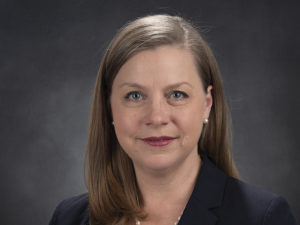
Recently released climate risk principles for the largest banks reveal that regulators are losing sight of crucial safety and soundness risks, said Federal Reserve Gov. Michelle Bowman in a public speech last week for the South Carolina Bankers Association.
In October, the Federal Reserve, FDIC and Office of the Comptroller of the Currency finalized the climate risk principles for banks with $100 billion or more in assets, which called on them to strengthen their governance, strategic planning, risk management oversight and data reporting policies.
Bowman sees the climate guidance as one instance in which regulators become “distracted from financial risks, and instead focus on issues that are tangential to statutory mandates and critical areas of responsibility.
“Climate change is not currently a prominent financial risk to the banking system,” she said.
The Independent Community Bankers of America has already called on the Federal Reserve Board to exempt mid-size and small banks from climate risk management policies, stating that the guidelines could trickle down to community banks. The ICBA has identified climate risk regulation as a growing threat to the business model of community banks.
ICBA Regulatory Counsel Jenna Burke has said the proposal would likely exclude institutions operating legally (but with politically unpopular environmental policies) from the banking system. Community banks cannot afford expensive analysis for future climate change scenarios, she said, especially on top of current spending to keep their existing systems up to date.
During her Jan. 8 speech, Bowman also pushed back against banking regulations proposed in the aftermath of the failures of Silicon Valley Bank, Signature Bank and First Republic Bank last spring, noting that the failures were attributed to management shortcomings, not regulatory errors.
“Many were undertaken or expanded with the purported goal to help address root causes of the bank failures and banking system stress,” she added. “But this also included a rulemaking agenda that at times had little to no nexus with the root causes of the failures. Without a doubt, it was a challenge to support the regulatory agenda this past year.”
Bowman said the Federal Reserve isn’t prepared to lower its target federal funds policy rate from its current range of 5.25 percent to 5.50 percent. She said she is willing to raise the rate “should the incoming data indicate that progress in inflation has stalled or reversed.
“To the extent that both food and energy markets remain exposed to geopolitical influences, they present upside risks to inflation,” Bowman added. “There is also the risk that the recent easing in financial conditions encourages a reacceleration of growth, stalling the progress in lowering inflation, or even causing inflation to reaccelerate.”
